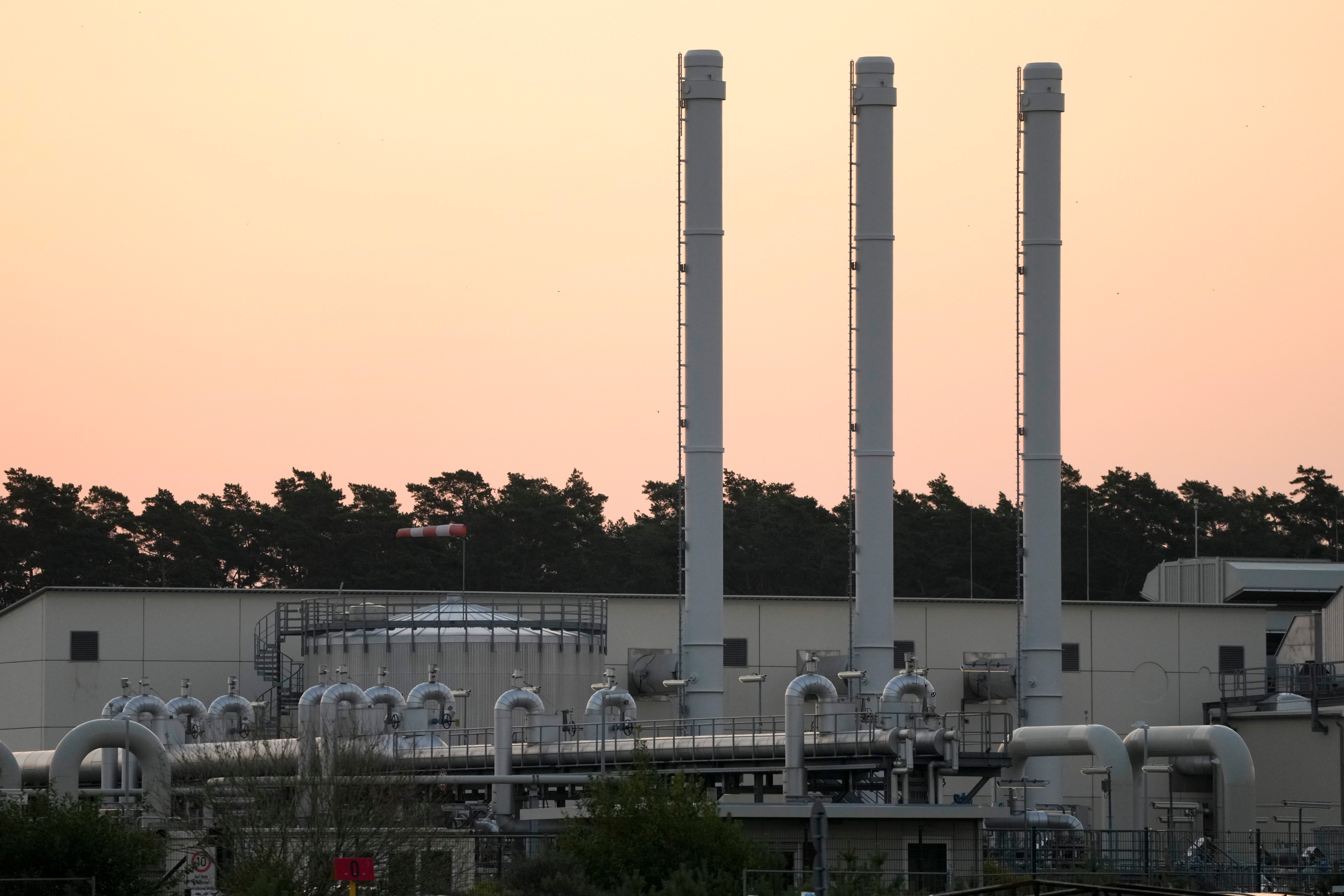Germany cautious over Nord Stream pipeline attack reports
Germany’s defense minister has voiced caution over media reports that a pro-Ukraine group was involved in blowing up the Nord Stream gas pipelines in the Baltic Sea last year

Germany’s defense minister voiced caution Wednesday over media reports that a pro-Ukraine group was involved in blowing up the Nord Stream gas pipelines in the Baltic Sea last year.
German daily newspaper Die Zeit and public broadcasters ARD and SWR reported Tuesday that investigators were able to largely reconstruct how the pipelines from Russia to Germany were sabotaged on the night of Sept. 26, 2022.
Citing multiple unnamed officials, the news outlets reported that five men and a woman used a yacht hired by a Ukrainian-owned company in Poland to carry out the attack.
The New York Times also reported Tuesday that U.S. officials reviewed intelligence that suggested a pro-Ukrainian group was behind the blasts. The Ukrainian government has denied involvement.
German Defense Minister Boris Pistorius said he read the news reports “with great interest” but warned against drawing hasty conclusions.
“We need to clearly differentiate whether it was a Ukrainian group that acted on the orders of Ukraine or (...) without the government's knowledge,” he told reporters in Stockholm.
Speaking on the sidelines of a European Union defense ministers meeting, Pistorius said some experts also had raised the possibility of a so-called false flag operation by a group pretending to be Ukrainian.
“It would not be the first time in the history of such events,” the German minister said. “As such, I'm refraining from drawing premature conclusions.”
Asked whether the reports could undermine Western support for Ukraine, Pistorius said he preferred to respond once he had reliable information. “Anything else is hypothetical,” he added.
Ukrainian Defense Minister Oleksii Reznikov rejected suggestions that the attack might have been ordered by Kyiv. “It’s like a compliment for our special forces, but this is not our activity,” he told reporters in Stockholm.
According to the German media reports, the suspects used forged passports when hiring the boat, which set off from the German port of Rostock. A captain, two divers, two diving assistants and a doctor made up the group, ARD reported.
White House National Security Council spokesman John Kirby declined Tuesday to comment on the New York Times report, noting that investigations by Denmark, Germany, and Sweden remain active.
“We need to let these investigations conclude,” Kirby said. “And only then should we be looking at what follow on actions might or may not be appropriate.”
Kremlin spokesman Dmitry Peskov on Wednesday described the media reports alleging Ukrainian involvement in the Nord Stream explosions as a coordinated manipulation intended to cover up the organizers of the attack.
“The masterminds of the terror attack clearly want to distract attention,” Peskov said in remarks carried by the state RIA Novosti news agency.
Russian President Vladimir Putin and his officials have accused the U.S. of staging the pipeline explosions, which they described as a terror attack.
Peskov again noted that Russia was denied access to evidence from the investigation. He called for a transparent international probe.
The Nord Stream 1 and 2 pipelines have long between a target of criticism by the United States and some of its allies, who warned that they posed a risk to Europe's energy security by increasing dependence on Russian gas.
Germany halted certification of the still uncommissioned Nord Stream 2 after Russia's invasion of Ukraine, and Moscow stopped the flow of gas in Nord Stream 1 weeks before the attack.
___
Lorne Cook in Brussels, Vladimir Isachenkov in Moscow and Aamer Madhani in Washington contributed to this report.
Bookmark popover
Removed from bookmarks